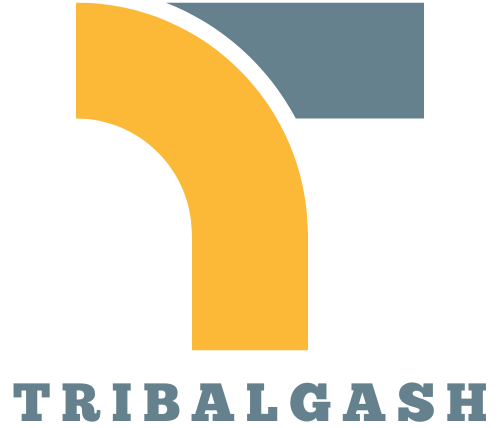Graduating from college is a significant milestone, but it often comes with uncertainty about what’s next. As the transition from student to professional begins, many graduates find themselves navigating a competitive job market. It’s crucial to approach this new chapter with confidence and a strategic mindset.
With the right career tips, graduates can enhance their chances of landing their dream job. From networking effectively to mastering interview skills, these insights can make a world of difference. Understanding how to present oneself and leverage skills gained during college can set the foundation for a successful career journey.
Table of Contents
ToggleEssential Career Tips for Graduates
- Network Effectively: Attend industry events, connect with alumni, and utilize platforms like LinkedIn. Building relationships helps graduates discover job opportunities and gain insights.
- Prepare for Interviews: Research potential employers, practice common interview questions, and develop an elevator pitch. Confidence and preparation enhance interview performance.
- Create an Impressive Resume: Tailor resumes for each job application, highlighting relevant skills and experiences. Use quantifiable achievements to make the resume stand out.
- Develop Soft Skills: Focus on communication, teamwork, and problem-solving abilities. Employers value emotional intelligence and interpersonal skills alongside technical knowledge.
- Pursue Internships: Gain real-world experience through internships. They provide valuable exposure and often lead to full-time employment opportunities.
- Seek Mentorship: Find mentors in the desired field who can provide guidance, support, and industry insights. Mentors can help navigate career paths effectively.
- Stay Adaptable: Embrace change and remain open to various career paths. Flexibility enables graduates to pivot as industry demands evolve.
- Utilize Career Services: Leverage resources from college career centers. These services offer resume writing help, job listings, and interview preparation guidance.
- Set Clear Goals: Define short-term and long-term career objectives. Specific goals provide direction and motivation throughout the job search process.
- Engage in Continuous Learning: Invest in professional development through courses, workshops, or certifications. Skills enhancement ensures graduates remain competitive in the job market.
Building Your Resume


A well-constructed resume plays a crucial role in capturing a potential employer’s attention. By focusing on relevant skills and experiences, graduates can enhance their chances of landing interviews.
Highlighting Relevant Experience
Highlight relevant experiences that showcase applicable skills and accomplishments. Use specific examples from internships, part-time jobs, volunteer work, or academic projects. Emphasize quantifiable results, such as “increased social media engagement by 30% during the internship” or “led a team of five in a successful project that resulted in a 15% cost reduction.” These details underline the impact of the graduate’s contributions.
Tailoring Your Resume for Each Job
Tailor each resume to match the specific job description requirements. Align skills and experiences with the employer’s needs, using keywords found in the job listing. Focus on showcasing relevant coursework, certifications, and competencies that correspond to the position. By customizing the resume for each application, graduates demonstrate genuine interest and fit, increasing their chances of advancement in the hiring process.
Networking Strategies
Effective networking significantly enhances job search success for graduates. Utilizing various methods helps establish and maintain valuable professional connections.
Leveraging Social Media
Leveraging social media platforms, particularly LinkedIn, plays a crucial role in networking. Graduates should create comprehensive profiles showcasing their skills and experiences. Engaging with industry professionals through posts, comments, and direct messages fosters relationships. Following relevant groups and participating in discussions expands visibility and connects graduates with potential employers. Sharing articles, insights, or accomplishments demonstrates expertise and keeps graduates active within their fields. Utilizing social media strategically can lead to job opportunities and professional collaborations.
Attending Industry Events
Attending industry events, such as conferences, seminars, and workshops, offers excellent networking opportunities. Graduates should research events that align with their career goals and interests. Preparing elevator pitches ahead of time enables effective introductions to industry leaders and peers. Collecting business cards or contact information facilitates follow-up conversations after the event. Actively participating in discussions, asking questions, and connecting with speakers enhances visibility and showcases enthusiasm. Attending these events nurtures relationships that may lead to job offers and mentorship opportunities.
Job Search Techniques
Graduates can employ various techniques during their job search to enhance their chances of securing interviews and job offers. These strategies focus on maximizing job boards and direct interactions with organizations.
Utilizing Job Boards Effectively
Utilizing job boards requires a targeted approach. He or she should:
- Set Up Job Alerts: Create alerts for specific job titles and industries to receive timely updates about new openings.
- Refine Search Criteria: Use filters for location, salary, and experience levels to narrow down relevant listings quickly.
- Research Companies: Investigate potential employers through their profiles on job boards, examining company culture and values.
- Tailor Applications: Customize resumes and cover letters for each application, emphasizing skills and experiences that match the job description.
- Leverage Niche Job Boards: Explore industry-specific boards for specialized opportunities that may not appear on general job sites.
Direct Outreach to Companies
- Identify Target Companies: Create a list of companies aligned with career goals and values, focusing on those with a good reputation in the graduate’s field.
- Send Informational Emails: Craft brief emails to hiring managers or department heads expressing interest in their work and inquiring about potential openings.
- Request Informational Interviews: Schedule informal conversations to gain insights about the company and the industry while establishing a personal connection.
- Follow-Up: After initial outreach, send follow-up emails thanking them for their time and reiterating interest in future opportunities.
- Utilize Alumni Networks: Reach out to alumni working at target companies for insights or potential referrals, easing the pathway toward job prospects.
Preparing for Interviews
Preparing thoroughly for interviews increases the chance of making a positive impression on potential employers. Graduates should focus on understanding the companies they apply to and anticipating the types of questions that might arise during an interview.
Researching the Company
Researching the company demonstrates genuine interest and helps candidates tailor their responses. Graduates should gather information about the company’s mission, values, culture, recent news, and industry standing. Utilize resources like the company’s website, press releases, and social media channels. Understanding key products, services, and recent achievements enables graduates to discuss how their skills align with the company’s objectives. Reviewing employee reviews on platforms like Glassdoor can provide additional insight into the work environment and expectations. This preparation allows graduates to articulate how they can contribute to the team’s success confidently.
Common Interview Questions
Anticipating common interview questions prepares graduates to respond thoughtfully and clearly. Frequently asked questions include:
- Tell me about yourself: Prepare a brief summary highlighting relevant experiences and skills.
- What are your strengths and weaknesses?: Focus on strengths that align with the job and discuss a weakness with a plan for improvement.
- Why do you want to work here?: Use insights from company research to explain personal motivations and fit for the company culture.
- Describe a challenge you’ve faced and how you handled it: Share specific examples that showcase problem-solving and resilience.
- Where do you see yourself in five years?: Connect personal professional goals to the company’s trajectory to demonstrate alignment.
Practicing these questions helps graduates converse naturally and confidently during interviews.









